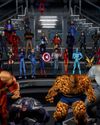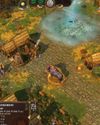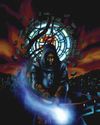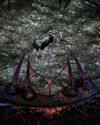
They say familiarity breeds contempt. Then again, how often do you see them popping up at Counter-Strike 2 majors? All of which is to say that when it comes to our gaming setups, there are two opposing forces locked in an eternal tug of war across our meticulously RGBed desk. On one side, the PC gaming hardware industry and its ever-changing roster of products, each featuring slightly higher numbers and vaguely different-sounding features than the last. Peripheral makers make us a tacit promise that this latest cool thing they've been working on will make us better gamers.
On the other side is our muscle memory. The divots we've furrowed into our neural pathways over innumerable hours spent attuning to our current, imperfect, outdated setups. We sit down, our hands find their way around our familiar mouse and keyboard, and our K:D finds its groove. So who's right? Does new, technologically advanced gear make us play better or is our familiarity with our own setup a greater asset? In a huge oversight on the part of the academic world, there isn't much scientific literature about this phenomenon.
Love Hz
First it was DPI.
Bigger was better, usability be damned.
Then when enough of us complained that, actually, 20,000 DPI mode isn't useful for much except making your PC unusable to intruders, mouse manufacturers moved on. Polling rate has become the in-vogue stat of recent years and, although its numbers have a more sensible real-world application since it defines how well it captures your own movements rather than sheer sensitivity, it's still over-emphasised for marketing purposes.
This story is from the {{IssueName}} edition of {{MagazineName}}.
Start your 7-day Magzter GOLD free trial to access thousands of curated premium stories, and 9,000+ magazines and newspapers.
Already a subscriber ? Sign In
This story is from the {{IssueName}} edition of {{MagazineName}}.
Start your 7-day Magzter GOLD free trial to access thousands of curated premium stories, and 9,000+ magazines and newspapers.
Already a subscriber? Sign In

A New Dawn - The rise, fall and rise again of PC Gaming in Japan
The so-called 'Paso Kon' market (ie katakana's transliteration of 'Pasonaru Computa') in Japan was originally spearheaded in the 1980s by NEC's PC-8800 and, later, its PC-9800.

MARVEL: ULTIMATE ALLIANCE
Enter the multiverse of modness.

SLIDES RULE
Redeeming a hated puzzle mechanic with SLIDER

GODS AND MONSTERS
AGE OF MYTHOLOGY: RETOLD modernises a classic RTS with care

PHANTOM BLADE ZERO
Less Sekiro, more Wo Long: Fallen Dynasty

STARR-MAKING ROLE
Final Fantasy XVI's BEN STARR talks becoming a meme and dating summons

THIEF GOLD
Learning to forgive myself for knocking out every single guard.

HANDHELD GAMING PCs
In lieu of more powerful processors, handhelds are getting weirder

FAR FAR AWAY
STAR WARS OUTLAWS succeeds at the little things, but not much else shines

FINDING IMMORTALITY
Twenty-five years on, PLANESCAPE: TORMENT is still one of the most talked-about RPGs of all time. This is the story of how it was created as a ‘stay-busy’ project by a small team at Black Isle Studios